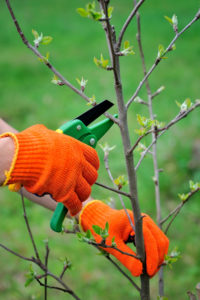
Simple living is an attitude of the heart that can help us align with God’s plan for our lives and find true fulfillment. The world will tell you to aim for quantity over quality. And we are always supposed to want more, more, more. But that actually leads to a stressful life. Simplicity creates margin and it helps us prioritize the essential.
An Aspect of Stewardship
We see the topic of living more simply as an aspect of stewardship and it also goes along with living with an eternal perspective. Those are two of our five pillars of living a strategic life. In our key verses for Living Strategically, Ephesians 5:15-17, God tells us to pay careful attention to how we conduct our lives, making the most of our time on earth.
So how do you know if you need to live more simply? You must learn to spot the warning signs that something needs to change:
- Do you lack peace of mind?
- Are you losing sleep at night?
- Is your daily schedule overwhelming because you are over committed?
- Is your health suffering?
- Are you drowning in debt?
- Do you feel unsatisfied, as if you have to continually chase after more?
You must discern when enough is enough. In fact, it’s even better when you can recognize those warning signs as early as possible, before natural consequences take their course.
Ecclesiastes 6:13 tells us, “There is a grievous evil which I have seen under the sun: riches being hoarded by their owner to his hurt.” And verse 18 goes on to say, “Here is what I have seen to be good and fitting: to eat, to drink and enjoy oneself in all one’s labor in which he toils under the sun during the few years of his life which God has given him; for this is his reward.”
King Solomon, the author of Ecclesiastes, knew a thing or two about having a complicated life. Maybe he was looking at his own life when he saw “riches being hoarded by their owner to his hurt.” In fact, most of the book of Ecclesiastes is about Solomon trying to find meaning and fulfillment in all the ways that the world has to offer, and yet coming up empty handed. But his conclusion in 6:18 is beautifully simple: basically, we should enjoy the simple pleasures in life and be content to do an honest day’s work.
They Weren’t Satisfied
We live in a society of excess, but God designed us to live simply. Consider Adam and Eve in the Garden of Eden. God provided everything they needed in that beautiful garden. They had food, water, shelter. They had companionship with God and with their spouse. And their God-given calling was to be stewards of the garden. Genesis 2:15 says, “Then the Lord God took the man and put him into the garden of Eden to cultivate it and keep it.”
But they weren’t satisfied. There was a boundary that God told them not to cross, a tree they were not to eat from. God told them the consequence would be death if they ate from the tree of the knowledge of good and evil.
But read what happened in Genesis 3:6, “When the woman saw that the tree was good for food, and that it was a delight to the eyes, and that the tree was desirable to make one wise, she took from its fruit and ate; and she gave also to her husband with her, and he ate.”
So, first of all, it brought delight to Eve’s eyes. It was desirable to make her wise. And then she shared it with her husband. In the end, Adam and Eve had many sorrows from their sin. They had to leave the garden, and their relationship with God was greatly impacted.
Eve got caught up in the sin that started from not being satisfied with the life that God had provided. It wasn’t enough for her. She went on to cross the boundary that she knew was wrong to cross. So, what about in our own lives?
Pleasing God
It says in Galatians 1:10, “For am I now seeking the favor of men, or of God? Or am I striving to please men? If I were still trying to please men, I would not be a bond-servant of Christ.” This verse reminds us that serving God is more important than striving to please men or even our own desires. The Lord should be our focus.
And in Hosea 13:5-6, God tells the Israelites, “I cared for you in the wilderness, in the land of drought. As they had their pasture, they became satisfied, and being satisfied, their heart became proud; therefore they forgot Me.”
God cared for the children of Israel for 40 years in the wilderness, but when they finally settled in the Promise Land, which was flowing with milk and honey, they became proud and ungrateful. And this verse tells us they forgot their God. Again, the Lord should be our focus in life, but too often we become complacent with what the world has to offer and we lose our focus.
Our chaotic culture tries to sell us a bag of lies in this area. But here’s the truth:
- You cannot maintain an overwhelming schedule. It will damage your health and important relationships will suffer.
- You cannot financially afford an endless cycle of consumerism and increasing your standard of living. You’ll end up in a financial crisis.
- And a larger home or a nicer car will not give your family true happiness. Only the Lord can give you lasting happiness, not physical possessions.
Not to mention that continuously striving for more is an unhealthy way to live. God wants better for us. Over the years we’ve learned that contentment is the attitude of gratefully accepting what God gives, while gracefully releasing what He withholds. And God’s plan is the only way to find lasting contentment and true fulfillment.
Getting Personal
For us personally, we made the commitment to be better stewards and live with an eternal perspective in 2013, after being married for 7 years. (That’s also the year we started Living Strategically.)
The first seven years of our marriage were invested in various ministry opportunities, getting college behind us, paying off all debt besides our home, and becoming self-employed. Those seven years were jam-packed, and we finally reached a point where we knew we needed to intentionally slow down and live more simply. We needed more safeguards in our lives to make sure that God was our #1 focus in all areas of life.
We basically started saying “no” more often than “yes”… and being more intentional with how we spent our time, our money, how we served in ministry opportunities, and even in some activities with family and friends. Now we are in our seventh year of intentionally living more simply, and we have found such a deep level of contentment.
Time to Prune
In order to do this, we had to prune off the things that were not yielding a return for their investment of time, money, energy, etc. And when you prune something, you see new growth. It was a strategic move that has paid off!

Some areas where we set some strategic boundaries included:
- Time wasters like social media and spending too many evenings in front of the TV. We deleted our social media accounts and no longer own a television set. (We will say, though, that in our free time and for educational purposes, we do watch videos on YouTube.)
- We also became more intentional about our purchases. This has saved us money and stopped the flow of excess from coming into our home. It saves us time because we own fewer items to maintain, and it helps us practice contentment and delayed gratification.
- We intentionally take a Sabbath rest day once a week, which gets us refreshed and gives us extra time with God.
- And a big area of de-stressing our lives was limiting our church and ministry commitments. We took a hard look at where we were serving and only stayed in the areas that aligned with our God-given calling. In some areas, we had been “volun-told” to do tasks and some of those tasks eventually didn’t make the cut. This required a lot of prayer to make sure we were making wise investments for God’s kingdom.
Evaluating the Spiritual Value
One thing that helped us prioritize in these areas was asking “What is the spiritual value in this activity, project, or commitment?” Honestly, some things added up to “busy work” and we had to let those things go. We realized that God doesn’t call us to do it all. And we found that simplifying our commitments and our finances gave us more time for our priorities in life: our relationship with God, our marriage, and our life’s calling.
Being human means that we have limitations, including limited time and resources. We had to decide what was making a lasting impact for God’s kingdom and lining up with God’s will for our lives. And we also needed more margin. We needed more times of rest in order to be our best. And more margin gave us time to evaluate which areas were unfruitful for us.
It’s All About Balance
Balance is a very important part of this equation. Some people go to an extreme and see how minimally they can survive. Some people take it to the opposite extreme and become hoarders. Either extreme can be an unhealthy obsession, rather than a simple way of life, because the focus is on stuff rather than on God.
As Christians, we should be using our resources to serve God, serve others, and provide for the needs of our family. That’s wise stewardship. It’s not about having the least amount of stuff or the most amount of stuff.
And the goal of living simply is not to reach a point where we can relax and take it easy, either. We want to find a healthy balance in our daily schedule between being consumed and being lazy. We need a work-life balance, with times of rest and renewal.

Getting Strategic
The key is finding the point where you are the most effective for God’s purposes for your life — in your investments of time, energy, money, and talents.
This requires a strategic process and we came up with an acrostic that spells “SIMPLE” to help us describe the process: Stop and take inventory, Invest in what really matters, Manage your resources wisely, Peace and Love, and Evaluate. Let’s expound…
S – stop and take inventory, evaluate where you need to implement changes in your life.
I – invest in what really matters, prioritize the most important and say “no” to what doesn’t line up with God’s priorities for you.
M – manage your time, relationships, assets, and abilities as good stewards…remembering that God owns it all. Managing things on a daily basis for an eternal impact.
P – peace: If you are losing peace and stress is setting in, that is an indicator that something needs to change. As you are managing things, monitor your level of peace and make changes where needed. We are always making adjustments when needed.
L – love: God’s greatest commandments are to love Him and love others. We keep margin in our schedule in case we need to spend extra time with God or others, filling our love tanks or someone else’s love tank.
E – evaluate: daily, weekly, monthly, annually. Make changes where needed, being guided by the Holy Spirit. Life is full of changes. We grow, we need to refocus in certain areas, we have a life changing event. The point is to keep evaluating things and be flexible.
If you follow these steps, you’ll be able to cultivate a simpler lifestyle. But remember, this process is ongoing and takes a daily commitment to stay the course.
The Parable of the Sower
Now we want to close with a passage from the book of Mark that tells the parable of the sower and the four soils. Specifically, the verses that talk about the seed sown among the thorns.
Mark 4:18-19 says, “And others are the ones on whom seed was sown among the thorns; these are the ones who have heard the Word, but the worries of the world, and the deceitfulness of riches, and the desires for other things enter in and choke the Word, and it becomes unfruitful.”
Living more simply is about the attitude of your heart. Don’t get distracted with riches, desiring things, or the worries of the world. Those thorns are part of a temporal world that is passing away and they lead to an unfruitful life.
Living strategically means being a faithful steward with an eternal mindset. And keeping God at the center of your life. Living simpler is the answer to so many worries in life, but only the courageous will make the necessary changes to take hold of that which is truly life.





